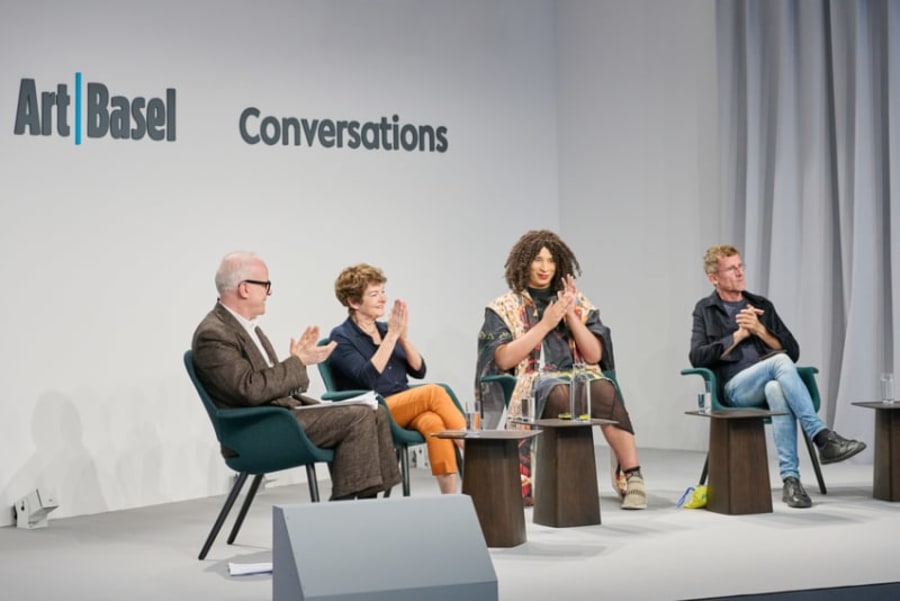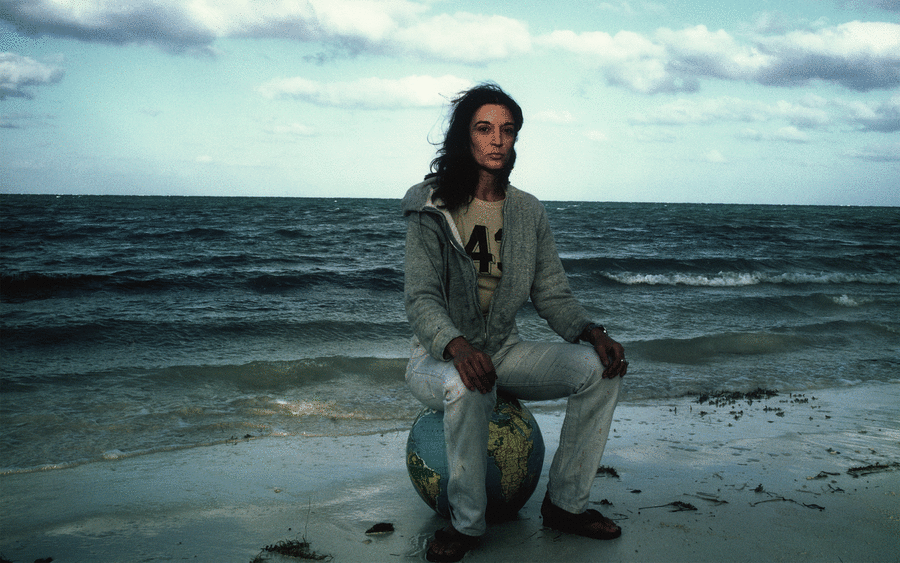For years, Berlin-based artist Danielle Brathwaite-Shirley made digital works depicting the lives of her transgender acquaintances in London. They were striking and well-executed, plugging the many gaps in her community’s historical archives. But, after receiving some well-intentioned criticism about the art’s passivity, she decided to change her approach and only create art that actively engages viewers.
In 2020, Brathwaite-Shirley began producing morally challenging, stylishly lo-fi video games, in which players are compelled to make decisions that directly question their own assumptions. As participants grapple with abstract queries, such as ‘Would you traumatize yourself or your partner’s future?’ or ‘Are some bodies more inherently violent than others?’, they find themselves drawn ever-deeper into the games. ‘In a gallery,’ she explains, ‘people can walk in and say, “Wow! This was gorgeous,” and then just leave. But what’s the point? I want you to feel something real.’
在這位德國藝術家於紐約貝浩登(Perrotin)舉辦的首次個展「When the Sun Hits the Moon」中,有幾幅畫作是初次亮相,主題為安東尼奧.卡諾瓦(Antonio Canova)的新古典主義雕塑中描繪的愛神厄洛斯與普姬幾乎接吻的場景。愛神不允許他的世間愛人看到他在光明中的樣子;當普姬拿著蠟燭對著愛神面龐的那一刻,這對戀人就永久地斷開了聯繫。Greven說:「我喜歡這個意象,因為我捕捉到的那一刻,他們還在互相對視,但未真正看見對方的面貌。他們仍處於黑暗之中,以內心注視和以內在擁抱。」
The game is dense, multilayered, and typical of Brathwaite-Shirley’s work in that the final outcome is not designed to bring about a happy ending. ‘The game is set up in a way that the more you want to look at the art, the more you’ll fail,’ explains the artist. That relationship between effort and the consumption of art forces a heightened engagement with the work and reflects on the complexities of the issues she’s addressing. ‘We need to have discussions and listen to other people’s opinions. Even if it’s frustrating. But it’s only through discussion that we can find out where people are really coming from.’
Duncan Ballantyne-Way is a writer, editor, and art critic based in Berlin.
Danielle Brathwaite-Shirley’s ‘The Soul Station’ is on view at Halle am Berghain from July 12 to October 13, 2024.
Caption for top image: Danielle Brathwaite-Shirley, You Can’t Hide Anything, 2024. Courtesy of the artist.
Published on July 15, 2024.


